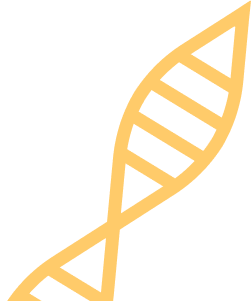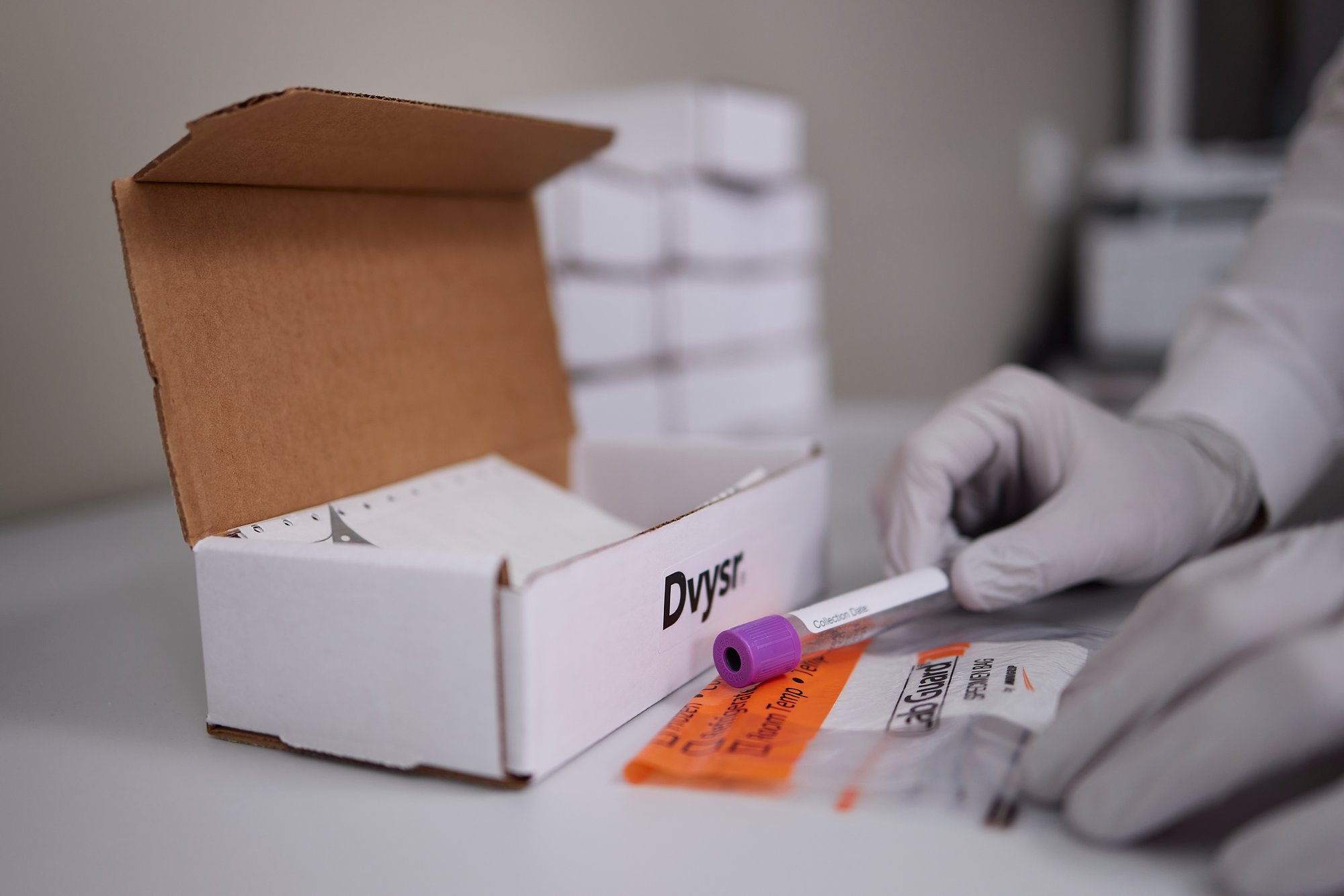TransplantTrace cfDNA
Precise, non-invasive monitoring of kidney health
Kidney transplantation is life-saving, but ongoing monitoring is essential to prevent complications like rejection. Traditional methods, such as serum creatinine tests and biopsies, often miss early signs of injury. Biopsies, while informative, carry risks and offer only a snapshot of graft health.
TransplantTrace cfDNA provides a non-invasive alternative, detecting early transplant injury through dd-cfDNA, allowing continuous monitoring and earlier interventions to protect kidney function.
Test type
NGS
Turnaround time
2-7 business days
Sample type
Whole blood

Benefits of TransplantTrace cfDNA
Cell-free DNA (cfDNA) is released into the bloodstream as a result of cell breakdown. It is thought that processes such as cell death, necrosis, and immune responses contribute to its release1. In the context of organ transplantation, donor-derived cfDNA (dd cfDNA) has been recognized as a highly sensitive tool for post-transplant monitoring for several years2. dd-cfDNA can detect graft damage even before clinical symptoms appear, offering the potential for early intervention to prevent rejection and graft failure3,4.
A major challenge in post-transplant care is identifying graft injury early enough for timely clinical action. dd-cfDNA has proven to be more sensitive than serum creatinine levels in detecting injury and offers better predictive accuracy for antibody-mediated rejection (ABMR) than the presence of donor-specific anti-HLA antibodies (DSA)5. As a result, dd-cfDNA enables earlier intervention, reducing the risk of rejection and graft damage. This method provides valuable diagnostic information that allows for personalized treatment decisions and may reduce the need for invasive procedures like biopsies or nephrectomies3. Since cfDNA can be detected through a simple blood test, it allows for more frequent and less invasive monitoring than traditional biopsy approaches.
Early detection of rejection
TransplantTrace detects elevated levels of dd-cfDNA, a reliable biomarker that signals donor organ cell damage or rejection. This allows healthcare providers to address complications sooner, improving patient outcomes and protecting long-term graft health.
Non-invasive monitoring
With just a simple blood test, TransplantTrace cfDNA eliminates the need for invasive biopsies, reducing patient discomfort and the risks associated with surgical procedures. Continuous, non-invasive monitoring ensures optimal care with minimal burden on the patient.
Actionable insights for precision care
TransplantTrace cfDNA provides data-driven insights into graft health, allowing clinicians to make informed decisions in real-time. By tracking changes in dd-cfDNA levels, healthcare providers can personalize care plans and adjust treatment to prevent irreversible damage.
95%
Analytical specificity
96.7%
Analytical sensitivity
93.3%
Functional sensitivity

Enhanced customer satisfaction
Contact our team to sign up your patients for testing. Devyser Genomic Laboratories offers an optimal sample collection, testing, and reporting experience. We are here to help at every stage, so get in touch.
Contact us for any questions.
How to order our test
STEP 2
Download and complete the test requisition form.
STEP 3
Ship sample to Devyser Genomic Laboratories
STEP 4
Results sent to physician
STEP 5
Devyser Genomic Laboratories bills the patient directly

Frequently Asked Questions (FAQs)
What specimen is required for the test?


The test requires a whole blood sample collected in a Streck tube.
When can I expect results?


You will receive results within 10 business days from us receiving the sample.
How does a patient pay?


Patients are billed directly by us following the sending of results.
Is your laboratory CLIA-certified?


Yes, our laboratory is CLIA-certified (CLIA number 11D2278668) and CAP-accreditation pending.
References
- Moreira, V. G., García, B. P., Martín, J. M. B., Suárez, F. O., & Alvarez, F. V. (2009). Cell-free DNA as a noninvasive acute rejection marker in renal transplantation. Clinical Chemistry, 55(11), 1958–1966. https://doi.org/10.1373/clinchem.2009.129072
- Huang, E., Sethi, S., Peng, A., Najjar, R., Mirocha, J., Haas, M., Vo, A., & Jordan, S. C. (2019). Early clinical experience using donor-derived cell-free DNA to detect rejection in kidney transplant recipients. American Journal of Transplantation, 19(6), 1663–1670. https://doi.org/10.1111/ajt.15289
- Oellerich, M., Shipkova, M., Asendorf, T., Walson, P. D., Schauerte, V., Mettenmeyer, N., Kabakchiev, M., Hasche, G., Gröne, H. J., Friede, T., Wieland, E., Schwenger, V., Schütz, E., & Beck, J. (2019). Absolute quantification of donor-derived cell-free DNA as a marker of rejection and graft injury in kidney transplantation: Results from a prospective observational study. American Journal of Transplantation, 19(11), 3087–3099. https://doi.org/10.1111/ajt.15416
- Oellerich, M., Sherwood, K., Keown, P., Schütz, E., Beck, J., Stegbauer, J., Rump, L. C., & Walson, P. D. (2021). Liquid biopsies: donor-derived cell-free DNA for the detection of kidney allograft injury. In Nature Reviews Nephrology (Vol. 17, Issue 9, pp. 591–603). Nature Research. https://doi.org/10.1038/s41581-021-00428-0
- Halloran, P. F., Reeve, J., Madill-Thomsen, K. S., Demko, Z., Prewett, A., Gauthier, P., Billings, P., Lawrence, C., Lowe, D., & Hidalgo, L. G. (2023). Antibody-mediated Rejection Without Detectable Donor-specific Antibody Releases Donor-derived Cell-free DNA: Results from the Trifecta Study. Transplantation, 107(3), 709–719. https://doi.org/10.1097/TP.0000000000004324

